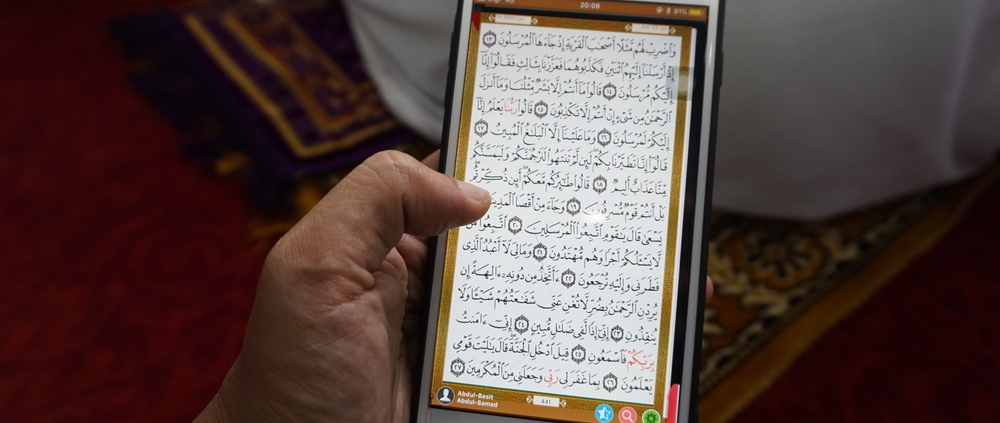Can We Touch the Virtual Pages of the Quran on a Phone Screen?
Hanafi Fiqh
Answered by Shaykh Yusuf Weltch
Question
It is said on the below-given link that “once the verses of the Quran appear on the screen, it will not be permitted to touch the area where the actual text appears without Wudu. However, touching other parts of the iPhone or device will be permitted.”
Quran Application on an iPhone: Can I Touch My iPhone Without Ablution?
Does it mean when the entire screen is with Quranic verses, that I can’t touch the screen, but when for example, only half is with Quran, I can touch this half?
And if the entire screen is with Quran. Can I touch the screen to scroll/get to the next page/verse? And if this is not permissible, can I touch the blank spaces between the verses to scroll?
Answer
In the Name of Allah, the Most Merciful and Compassionate
If the Quran is presented on the screen of a device, the entire screen takes the ruling of a copy of the Quranic (Mushaf). Due to this, one is not permitted to touch any portion of the screen without wudu, just like one is not allowed to touch any portion of a copy of the Quran without wudu. [Maydani, al-Lubab fi Sharh al-Kitab]
If only part of the screen has Quranic texts, then the prohibition of touch without wudu applies to the verses themselves and not the entire screen. [Ibid.]
Hope this helps
Allah knows best
[Shaykh] Yusuf Weltch
Checked and Approved by Shaykh Faraz Rabbani
Shaykh Yusuf Weltch is a teacher of Arabic, Islamic law, and spirituality. After accepting Islam in 2008, he then completed four years at the Darul Uloom seminary in New York where he studied Arabic and the traditional sciences. He then traveled to Tarim, Yemen, where he stayed for three years studying in Dar Al-Mustafa under some of the greatest scholars of our time, including Habib Umar Bin Hafiz, Habib Kadhim al-Saqqaf, and Shaykh Umar al-Khatib. In Tarim, Shaykh Yusuf completed the memorization of the Qur’an and studied beliefs, legal methodology, hadith methodology, Qur’anic exegesis, Islamic history, and a number of texts on spirituality. He joined the SeekersGuidance faculty in the summer of 2019.
